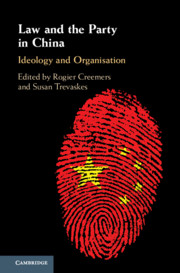Part I - Ideology and the Party in Law
Published online by Cambridge University Press: 17 December 2020
Summary

- Type
- Chapter
- Information
- Law and the Party in ChinaIdeology and Organisation, pp. 29 - 148Publisher: Cambridge University PressPrint publication year: 2021



